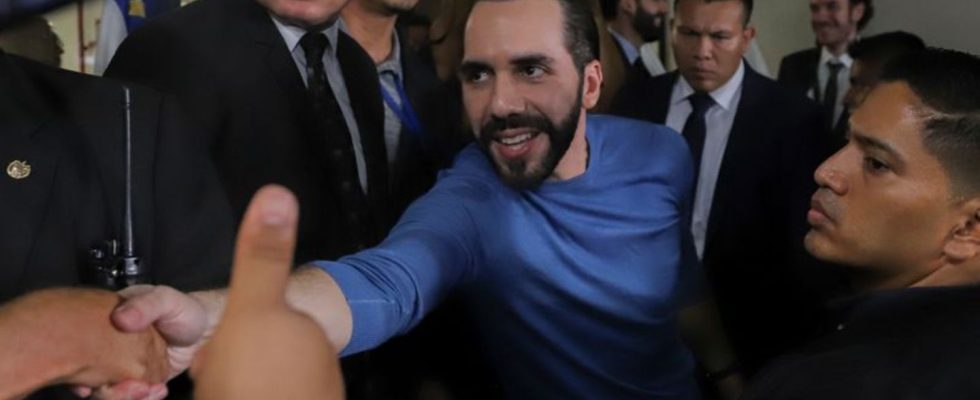Central America
El Salvador: Bukele is heading for re-election
Nayib Bukele (M) has been the President of El Salvador since 2019. photo
© Salvador Melendez/AP/dpa
With his tough policy against criminal gangs, the young President Bukele has won over Salvadorans. However, human rights activists warn against the authoritarian course.
El Salvador’s controversial head of state Nayib Bukele is seeking a second term in office in the Central American country’s presidential and parliamentary elections. According to polls, the 42-year-old is likely to be re-elected with a large majority in Sunday’s vote.
His successful but controversial actions against criminal gangs that had terrorized the Central American country for decades are seen as key to the expected electoral success. Crime fell significantly under Bukele.
But critics warn of an increasingly authoritarian course taken by the former mayor of the capital San Salvador, who has been in office as president since 2019. They point, among other things, to the restriction of civil rights, arbitrary arrests and the erosion of the separation of powers.
Bukele, a former advertising executive, often makes fun of his critics and at times described himself as the “coolest dictator in the world” in his profile on the Twitter platform, now known as X.
Life in a state of emergency
The people of El Salvador, the smallest Central American country, have been living in a state of emergency for almost two years. A number of basic rights such as freedom of assembly were restricted. More than 75,000 suspected gang members have since been arrested, most only on suspicion and without access to lawyers. Videos of thousands of tattooed gangsters being herded into a new high-security prison wearing only white underpants went viral.
El Salvador’s constitution actually prohibits the direct re-election of the president. However, constitutional judges loyal to the government had approved Bukele’s candidacy for a second, five-year term. To circumvent the ban, the head of state only has to take a leave of absence for six months – until the day of the planned inauguration next June 1st.
Not a real challenger
There were six presidential candidates on the ballot on Sunday. However, the president, who introduced the digital currency Bitcoin as legal tender in El Salvador, did not have a real challenger. Bukele was ahead in all polls with at least 70 percent. Around 6.2 million citizens were eligible to vote in the vote, including 741,000 Salvadorans abroad.
The right-wing Arena party and the left-wing FMLN, which ruled the country for 30 years until Bukele’s 2019 election victory, are likely to face an electoral debacle. The presidential candidates Manuel Flores of the FMLN and Joel Sánchez of Arena each received less than five percent in the polls.
In the parliamentary election, which will take place at the same time as the presidential election, Bukele’s Nuevas Ideas party is expected to win almost all seats in parliament. In June, the Congress, dominated by the ruling party, reduced the number of seats from 84 to 60 and changed the calculation method for the distribution of seats. The right to vote now favors the majority party when awarding mandates.

